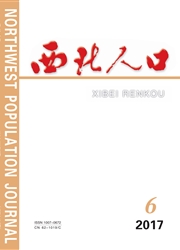

 中文摘要:
中文摘要:
中国存在经济快速增长与国民医疗保健状况改善缓慢的矛盾,甚至出现了“看病贵”、“看病难”的公共难题。在梳理已有相关研究成果的基础上.选定5岁以下婴儿死亡率等代理变量来分析国民健康、经济增长和医疗保健体系建设的关系,发现三个变量存在一个协整,长期关系稳定,脉冲分析发现经济增长在长期对国民健康水平有显著的正向作用.但在初期却存在恶化国民健康的可能。个人付费为主的医疗保健体系对国民健康水平有显著的促进作用.但医疗保健体系的不完善一定程度上降低了卫生支出对健康的促进作用。稳健性检验进一步证明了结论的正确性.而且发现单纯依靠增加卫生资源消费并无法增进国民健康。在分析结论的基础上,本文提出了促进经济发展、保护环境、完善城乡公共卫生保健等建议。
 英文摘要:
英文摘要:
In modern times, in China, there is a conflict between fast economic growth and the slow growth of national public health, and even the health care has become a rich and difficult problem. This paper choose infant death ratio of the total death and some other variables to deputy economic growth, health care system and national public health. The outcome shows that there is a long-term cointegration among the three variables, and the outcome of impulse responses show that economic growth has the significant impact on the national public health, however, in the early times a bad impact may occur. The health care system which mainly depends on private payment partly advance the national public health. According to the research, this paper brings forward some advices such as accelerating the economy, protecting the environment, developing the public health care and creating a health-advancing rich society.
 同期刊论文项目
同期刊论文项目
 同项目期刊论文
同项目期刊论文
 期刊信息
期刊信息
